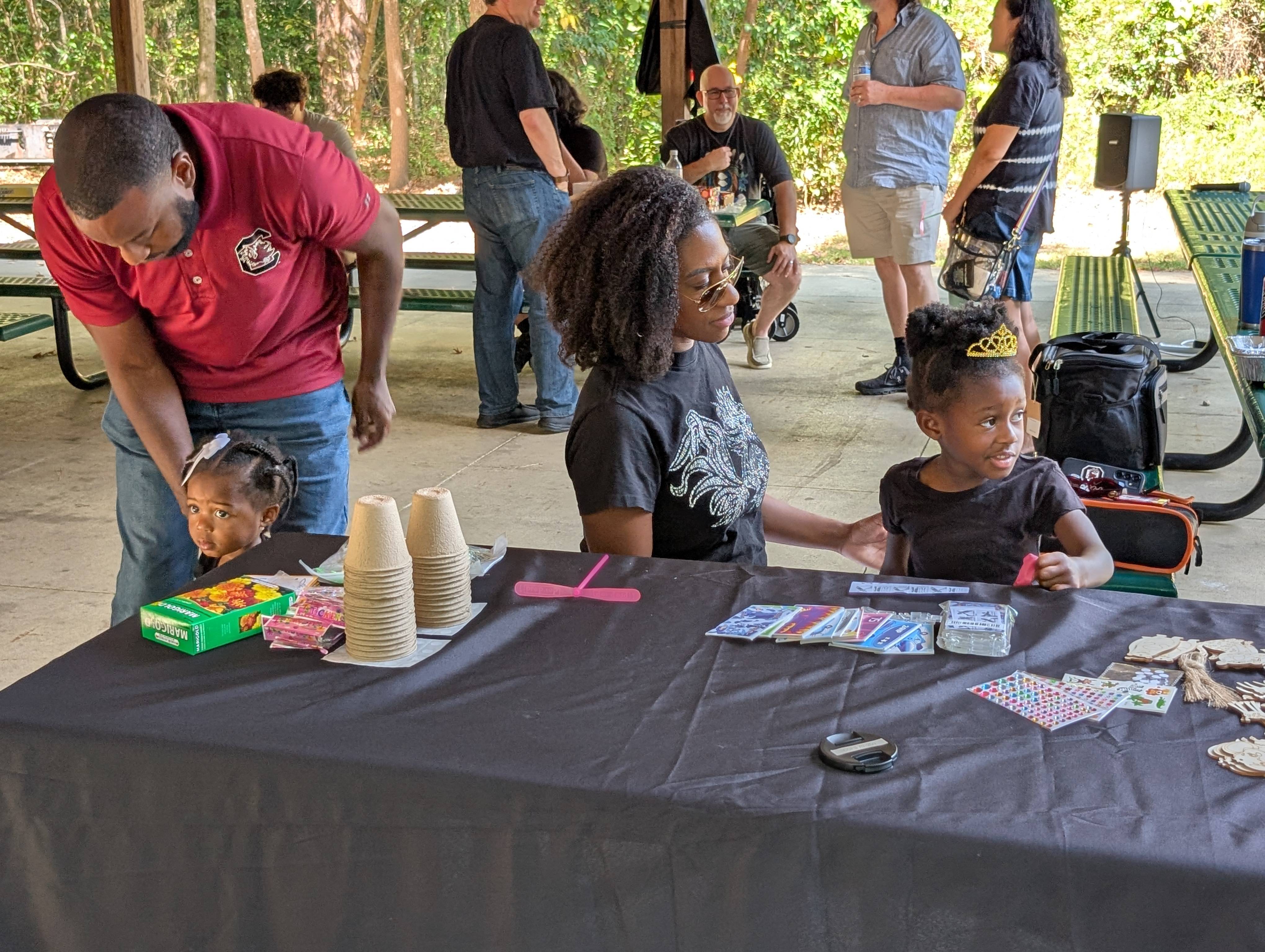Like many social workers, Alexis Scurry views her work in the Midlands as more than a career. She says it’s her calling - one rooted in service, advocacy and teaching. As the new Interim Associate Director of Field Education for the Online MSW Program and faculty member, she draws from over a decade of experience in child welfare, substance abuse prevention and community engagement to prepare the next generation of South Carolina’s social work leaders.
It’s also a family affair. Social work is a passion for her family; her brother-in law Derrick Jordan is an MSW graduate and CEO of Columbus Springs, an Ohio healthcare clinic. Scurry’s husband Embre, a USC engineering graduate, is the grandson of Evelyn Hill, a graduate of COSW’s very first MSW class in 1971.
A Winthrop University graduate with a bachelor’s degree in Family and Consumer Sciences, Scurry specialized in youth issues before earning her Master of Social Work from USC. Her professional path has included roles as substance abuse prevention coordinator and a volunteer trainer, recruiter and former coordinator of the Anti-Human Trafficking Project Coordinator for Richland County CASA (Mission | Richland County CASA), an organization devoted to the welfare of Midlands children.
Scurry’s service to her community extends far beyond the classroom and well into other regions of South Carolina. She serves as board chair for Kindred Hearts of South Carolina, vice chair of the Columbia Area Mental Health board and volunteers as a guardian ad litem.
Her contributions have been recognized with multiple awards, including the Student Choice Award for Faculty at Columbia College and Board Member of the Year for Kindred Hearts of SC. She’s also pursuing her doctorate in social work at the University of Kentucky, focusing on social work education.
We caught up with Scurry to find out why she chose social work, her position at COSW and how her family influenced her to help others.

Getting to know Alexis Scurry
As Interim Associate Director of Field Education for the online MSW program, what’s your vision for supporting students in their internships?
My vision is to ensure all students have meaningful, competency-based placements that connect theory to practice. Their placements will effectively prepare them for the profession of social work. In this role, I will help students navigate barriers to ensure a quality learning experience. My focus is to build strong agency partnerships, support our field community, and maintain clear communication to promote student success.
Our new online MSW program began this fall. What do you see as the unique strengths and challenges of field education in an online format?
Field education in an online format offers accessibility, allowing students from diverse geographic regions and backgrounds to engage in placements without relocating. The flexibility and expansion support our commitment to equity and inclusion in social work education for students who may face complex barriers. The challenges include ensuring consistent quality across varied agencies, providing adequate support to field instructors, and fostering connection in a virtual learning environment. Understanding the complexities of field education in an online environment before implementation will allow us to create solutions and address potential issues.
How do you help students connect their coursework with real-world practice in their communities?
I help students connect coursework with real-world practice by teaching them to apply theories, social work values, and skills to their individual encounters in field placement. Through reflection and intentional assignments, students critically examine how their learning informs their professional decision-making. This approach ensures that students develop as competent practitioners who can effectively serve their communities and clients.
Much of your background has been in prevention, child welfare and anti-human trafficking. What have been the most rewarding and challenging aspects of these social work areas?
The most challenging moments are when clients struggle to see what changes are needed to begin their journey of transformation. The most rewarding moments are witnessing clients rebuild their lives and hearing their success stories years after termination. (I would share more insights on the impacts of policy, but my response would be 2 pages long!)
You have a relative that was a graduate of our first MSW class. Was she your inspiration to pursue the profession?
My husband’s grandmother graduated from the first MSW class in 1971. She and my mother inspired me to pursue the profession. Initially, I ran from my calling because of the assumptions of the earning potential of social workers. However, I realized my passion and purpose was to help others, so I applied to USC’s MSW program and matriculated in 2017.
Social Work is clearly a family affair. Your brother-in-law Derrick Jordan is also a social worker – has that had any influence upon you?
Derrick provides additional insight into the profession of social work from an administrative level. He also encourages me to prepare myself with the tools necessary to go after what I want!
What trends in social work do you think will have the greatest impact on the next generation of practitioners?
Artificial intelligence (Ai) will significantly shape the future of social work by streamlining case management, improving risk assessment, and expanding access to resources. However, the next generation of social workers must think critically to address issues of privacy, bias, and equity to ensure technology upholds social work values.
What advice would you give to MSW students as they prepare for their careers?
Maximize your time at USC by fully engaging in the learning process. Build intentional connections with your cohort and the College of Social Work community, as these relationships can open the door to endless opportunities.
You’ve said this is your “motto”. How does the African proverb “Each one, teach one” guide your teaching and mentoring?
“Each one, teach one” guides my teaching and mentoring by reminding me that knowledge is meant to be shared. I strive to create classrooms and mentoring relationships where we feel empowered to learn with one another and from one another. When one person advances, the entire community benefits.